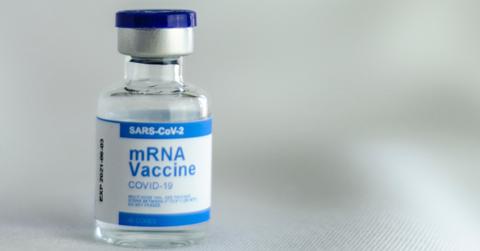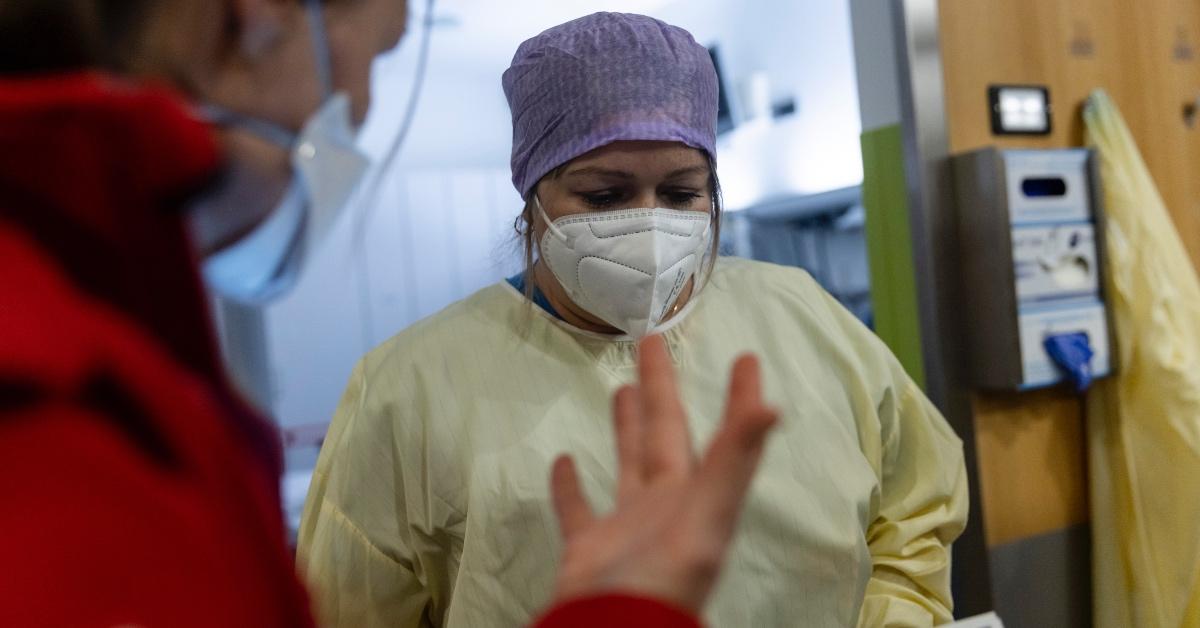Could the Term ‘Fully Vaccinated’ Include a Booster Shot Soon?
A fully vaccinated person is someone who received the full series of a COVID-19 vaccine. Pfizer and Moderna vaccines require two shots, while J&J requires one.
Jan. 4 2022, Published 1:35 p.m. ET

If it has been two weeks since you received your second dose of the Pfizer or Moderna vaccine or one dose of the Johnson & Johnson’s Janssen vaccine, then the CDC considers you to be "fully vaccinated." Currently, an additional primary dose or booster shot isn't needed to be considered "fully vaccinated" against the COVID-19 virus.
However, with new variants of the COVID-19 virus posing a threat to public health, private businesses and even states are considering changing the requirements and possibly mandating a booster shot. Does this mean that the term "fully vaccinated" will differ from one person to the next?
Booster shots aren’t required if you want to be fully vaccinated, although some states might mandate them for certain workers.

Many changes are being considered and implemented across the U.S. concerning the COVID-19 virus, which has caused confusion among people who are trying to understand what "fully vaccinated" means. While the CDC has issued its guidance that defines being "fully vaccinated," some states have taken it upon themselves to modify requirements for certain employees.
In New Mexico, healthcare workers are required to be fully vaccinated against the COVID-19 virus but now they must also be boosted by January 17, 2022. Those who work in a public school setting are required to submit to a weekly COVID-19 test if they aren't vaccinated or receive a booster shot if they had a full series of a vaccine administered.
New Mexico Governor Michelle Lujan Grisham announced the changes in an updated public health order that was issued on December 2, 2021. The order states that booster shots will be required for healthcare workers and all of them must comply with the order no later than Jan. 17 or within four weeks of becoming eligible for a booster.
New York City Mayor Eric Adams might mandate booster shots for teachers and other city workers.
On January 2, 2022, New York City Mayor Eric Adams shared during an ABC This Week interview that he was considering mandating booster shots for certain city workers. Adams said that his next move might be to mandate booster shots, but until that time comes, he encourages people to start getting boosted now.
Adams also clarified that booster shots aren’t meant to prevent you from catching COVID-19. Instead, they're designed to help you avoid suffering serious illness in the event that you contract the virus.
The CDC is analyzing booster shots and other guidelines.
Over time, it's possible that the primary vaccine you received to protect you against the COVID-19 virus has waned. It might be less effective at preventing you from developing severe symptoms, which is why companies have manufactured booster shots and some businesses are now mandating them.
You can start receiving an mRNA booster shot in as little as five months after receiving a full series of the Pfizer-BioNTech vaccine or six months if you received two doses of the Moderna vaccine. The CDC says that you must wait at least two months after getting a single dose of Johnson & Johnson’s Janssen vaccine before you can get boosted.
In addition to pushing booster shots to help “enhance or restore protection” against the COVID-19 virus and its variants, the CDC is also updating its guidelines for immunocompromised children aged 5–11 years old. The CDC says that children who fall into this category are being encouraged to receive a third dose of the Pfizer vaccine to complete the series.
As studies provide us with better insight into how the COVID-19 virus behaves, we can expect the CDC to update its guidelines once again. While there haven’t been any changes to how the CDC defines being "fully vaccinated," you're encouraged to visit the agency’s website or Twitter page where updates are posted regularly.
